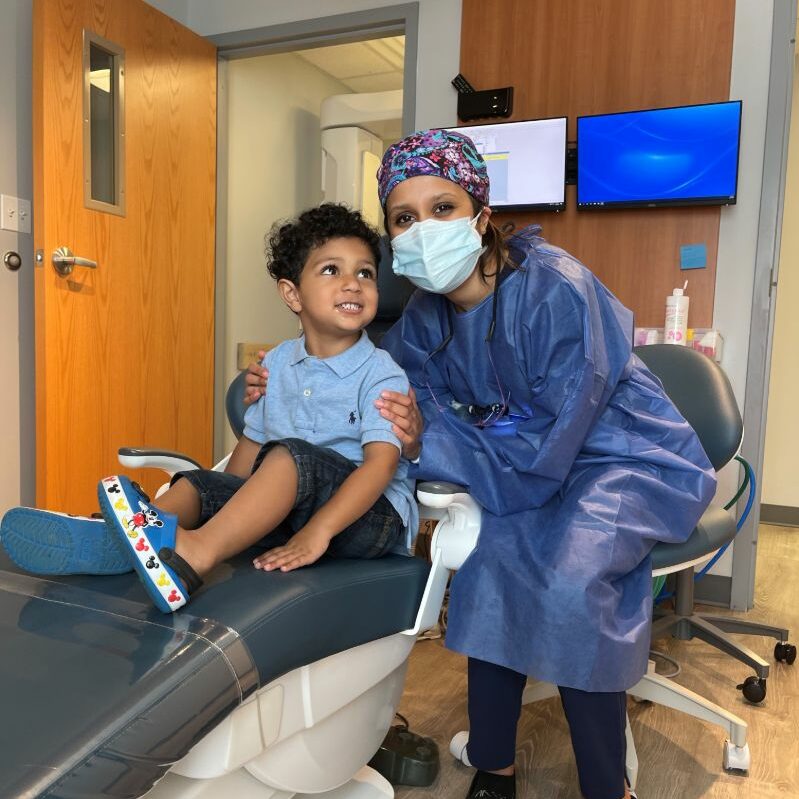Premier Children Dentist for Comprehensive Dental Solutions
Pediatric Dental Emergencies: What Parents Required to Know for Quick and Effective Therapy
In the realm of pediatric medical care, dental emergency situations can develop suddenly, leaving parents uncertain of exactly how to deal with the situation efficiently. Recognizing the indications, kinds of injuries, and instant actions to take can make a significant difference in the outcome for a child's oral wellness. With a quick and suitable feedback, parents can mitigate possible lasting repercussions and ensure their youngster obtains the essential care promptly. By being prepared and educated, parents can play a vital duty in guarding their kid's dental health.
Indicators of Pediatric Dental Emergencies
When examining pediatric dental emergencies, it is crucial for moms and dads to be cautious for specific signs indicating potential serious issues. Among the primary indications of an oral emergency in kids is relentless tooth discomfort that is not eased by over the counter pain medicines. This could suggest a hidden infection or damages that calls for prompt focus from a dental practitioner. Swelling in the gum tissues, face, or jaw area is one more warning that needs to not be disregarded, as it could be an indicator of an abscess or other major dental problem.

Typical Kinds of Oral Injuries
Usual kinds of oral injuries in youngsters often result from accidents or sports-related tasks that can lead to various kinds of trauma to the mouth and teeth. One common dental injury is a fractured tooth, which can range from a minor chip to a much more serious break including the inner layers of the tooth. An additional frequent injury is a knocked-out tooth, where prompt action is crucial to enhance the chances of saving the tooth. Kids may additionally experience oral injuries like tooth intrusion, where the tooth is pressed into the jawbone, or avulsion, which is the total variation of a tooth from its socket. In addition, oral injuries can include luxation, you could try these out where the tooth is removed however not totally knocked out, or soft cells injuries to the gum tissues, lips, or tongue. It is crucial for moms and dads to be knowledgeable about these common sorts of oral injuries to supply timely and suitable care in case of emergencies.
Immediate First Aid Measures
Upon experiencing a pediatric dental emergency situation, swift and ideal very first aid measures are crucial to alleviate discomfort and stop more complications. For a knocked-out tooth, instruct the child to gently rinse the tooth with water, trying not to touch the root, and location it back in the outlet if possible. If re-implantation is not viable, keep the tooth in a container of milk or the kid's saliva up until getting to the dentist.
When to Look For Expert Help
Looking for timely dental care from a pediatric professional is vital in attending to prospective issues emerging from pediatric oral emergencies. Parents must seek professional aid right away if their child experiences extreme tooth discomfort, facial swelling, bleeding that does not quit, a knocked-out permanent tooth, or any trauma to the mouth or face. These signs show a major dental problem that calls for immediate focus from a pediatric dental professional.
In addition, if a child suffers consistent tooth level of sensitivity to hot or cold, difficulty eating or ingesting, or indications of infection such as pus dentist is around the periodontals, moms and dads must not delay in seeking specialist oral care. These signs and symptoms could suggest underlying oral troubles that need to be addressed without delay to stop additional issues.
In instances of dental emergency situations, it is crucial for parents to get in touch with a pediatric dental practitioner asap to make sure appropriate paedodontics medical diagnosis and treatment - pediatric dentistry oakland. Postponing specialist aid can lead to exacerbated oral concerns and extended discomfort for the child

Protecting Against Future Oral Emergencies
To lower the likelihood of future oral emergencies, parents ought to focus on regular dental hygiene practices and regular check outs to a pediatric dentist for preventative treatment. Encouraging children to brush their teeth two times a day with fluoride toothpaste and teaching them the proper method for two minutes each time can substantially decrease the threat of oral problems.
Routine check outs to a pediatric dental professional for check-ups and cleanings are vital for early discovery of any type of potential oral issues. These appointments permit the dental practitioner to keep an eye on the child's dental health, provide expert cleanings to get rid of plaque and tartar build-up, apply fluoride therapies for added defense, and offer guidance on appropriate oral treatment methods.
Conclusion
Finally, parents must know the signs of pediatric oral emergencies, typical types of dental injuries, prompt emergency treatment actions, and when to seek expert help. By taking positive actions to avoid future oral emergencies, moms and dads can guarantee quick and efficient therapy for their kids. It is essential to stay notified and prepared in order to take care of any oral emergency situation that may develop.